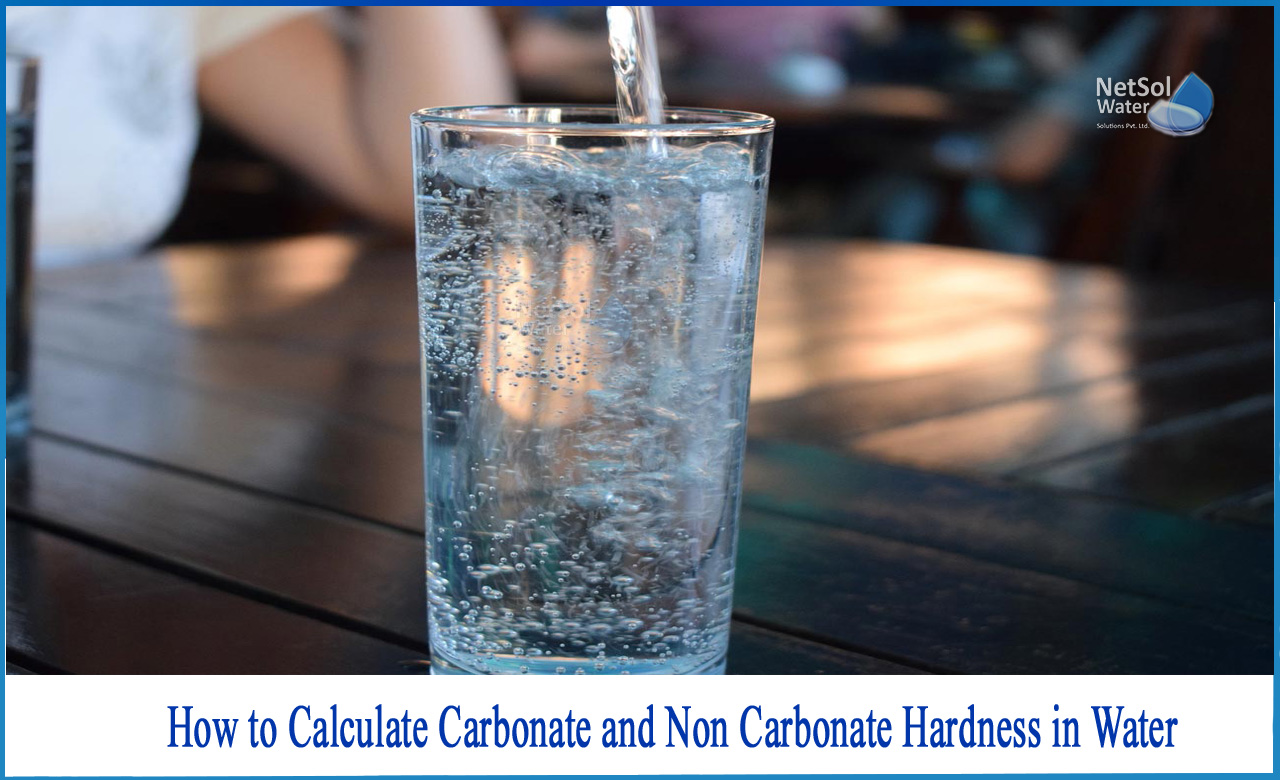How to calculate Carbonate and Non Carbonate Hardness in water?
Water hardness is the traditional measure of a water's ability to react with soap, with hard water requiring significantly more soap to produce a lather. It is caused by a combination of dissolved polyvalent metallic ions, primarily calcium and magnesium cations, but other cations (e.g.;aluminium, barium, iron, manganese, strontium, and zinc) also contribute.
The most common unit of measurement for hardness is milligrams of calcium carbonate equivalent per liter.
Water containing calcium carbonate at concentrations less than 60 mg/l is considered soft; 60–120 mg/l is considered moderately hard; 120–180 mg/l is considered hard; and more than 180 mg/l is considered very hard. Although cations cause hardness, it can also be divided into carbonate (temporary) and non-carbonate (permanent) hardness.
Degree of hardness
The extent of hardness is defined as the degree of hardness. It is given in milligrams of CaCO3 equivalent to all hardness-causing substances in one million milligrams of water. This is measured in parts per million (ppm). It can also be expressed as the weight in milligrams of CaCO3 equivalent to the total amount of hardness-causing substance in one liter of water.
Types of hardness
Water hardness can be divided into two types:
A: Temporary; B:Permanent
1.Temporary Hardness: The presence of magnesium and calcium carbonates in water causes it to become temporarily hard. The hardness in the water can be removed in this case by boiling it. When we boil water, the soluble salts of Mg (HCO3)2 are converted to insoluble Mg(OH)2, which precipitates and is removed. The water we get after filtration is soft water.
Carbonate hardness can be calculated using the formula:
If the total alkalinity < total hardness, so carbonate hardness = total alkalinity.
If the total alkalinity ≥ total hardness, so carbonate hardness = total hardness.
2.Permanent Hardness of Water: When soluble salts of magnesium and calcium are present in water in the form of chlorides and sulphides, this is referred to as permanent hardness because it cannot be removed by boiling. We can remove the hardness from the water by treating it with ion-exchange process.
Non-carbonate hardness = Total hardness - Carbonate hardness
Why to measure hardness?
In general, hard water deposits consist primarily of calcium and magnesium salts and can damage equipment’s, whereas soft water can be corrosive. As a result, it is critical to measure and understand hardness levels in your process water to maintain the delicate balance between scaling and corrosivity. While some hardness may be acceptable in some water quality applications, others require zero hardness to prevent scaling and equipment damage.
As a result, water softening via precipitation or ion exchange is frequently required to remove hardness. To optimize these processes, calcium and magnesium levels, as well as total hardness, must sometimes be monitored separately.
Netsol Water is Greater Noida-based leading water & wastewater treatment plant manufacturer. We are industry's most demanding company based on client review and work quality. We are known as best commercial RO plant manufacturers, industrial RO plant manufacturer, sewage treatment plant manufacturer, Water Softener Plant Manufacturers and effluent treatment plant manufacturers. Apart from this 24x7 customer support is our USP. Call on +91-9650608473, or write us at enquiry@netsolwater.com for any support, inquiry or product-purchase related query.



